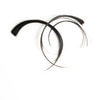|
Skincare specialists The Derm Review analyzed the 100 best-selling natural skincare products to establish how many of these contain synthetic ingredients. The study determined:
See the full findings from the research here: https://thedermreview.com/natural-skincare-study/ Skincare biochemists from The Derm Review analyzed the ingredient lists of the 100 best-selling skincare products containing the word “natural”. The study found that out of the 100 best-selling natural products, only 42 were truly natural. The majority (58%) of products included at least one synthetic ingredient. The average number of different synthetic ingredients used in “natural” skincare products was found to be 2.4. The Cost of Natural Skincare Products The study found that the price of skincare products marketed as “natural” were on average 24% more expensive than skincare products that didn’t contain the word. The most expensive “natural” skincare products were facial toners. They were found to cost 479% more than “regular” toners. Top synthetic ingredients found in natural skincare products Ethylhexylglycerin is the most commonly used synthetic ingredient and was found in 24% of all the “natural” products. It is deemed safe and is generally used in low concentrations in skincare products however, it can cause minor irritation to the skin and eyes if high concentrations are used. The second most commonly found synthetic ingredient was Phenoxyethanol which was found in 22% of the products. Like Ethylhexylglycerin, it is considered safe but can cause irritation when high concentrations are used. It is used mainly as a preservative and antimicrobial agent used to help your products last longer and prolong their safety and efficacy. Sodium Ascorbyl Phosphate comes up as the third most widely used synthetic agent and was found in 13% of the “natural” products. While being a synthetic agent, it is generally safe for all skin types, and is a type of vitamin C. Products containing synthetic ingredients Out of the product types The Derm Review looked out, all of the serums contained at least one synthetic ingredient. Out of the “natural” face masks on the list, 78% contained synthetic ingredients, while 58% of moisturizers and 55% of cleaners contained synthetic agents. Are all synthetic skincare ingredients bad? No, and not all natural products are good. Some chemical ingredients have been scientifically developed to be more gentle on our skin and more cost-effective to formulate. Other synthetic ingredients are processed to mimic bioavailable products that may be rare or threatened in the wild, and are aiming to prevent damage to biodiversity and environmental destruction. For consumers, it can be difficult to tell the difference between the “good” and “bad” when reading a skincare label. Some long chemical-sounding words can sound “scary”, and many consumers may feel that the product feels safer if they see ingredients they recognise on the list. When it comes to the synthetic versus natural skincare debate, it is not black and white. However, synthetic products are often demonized, and as a result, consumers seek out to find natural alternatives. Indeed, a 2018 survey showed that the vast majority of people (90%) believe that natural or naturally-derived beauty ingredients are better for them. It is important to remember though, that just because something is natural doesn’t mean it’s safe. Some natural ingredients, such as essential oils, could be poisonous if used incorrectly, and many natural ingredients can cause more irritation to the skin than synthetic alternatives. Elle MacLeman, Skincare Biochemist at The Derm Review says: “As we’ve established, natural is not always better, but despite that, consumers have the right to know whether the products they buy are indeed natural or not.” “Sadly many brands overuse the word “natural” in their marketing in order to sell more products, and that feels misleading and deceptive. Especially as our research found that these products tend to be priced higher while not necessarily being better, safer or more environmentally friendly.” “I think one of the problems is that the industry is pretty much unregulated when it comes to making claims. For instance, it’s common to see ‘chemical-free’ products on the shelves, but that doesn’t make any sense as even water is a chemical.” Methodology The Derm Review searched Amazon.com during July 2021 for phrases such as ‘natural skin care’, ‘natural moisturizer’ and looked at the top 100 best-selling products that came up within the search results. For pricing, we compared the $ per Fl Oz on products marketed as “natural” with the same type of skincare products that didn’t contain the word natural. from SalonToday
Hair by Brian - The Beauty Blog
Comments are closed.
|
Hair by BrianMy name is Brian and I help people confidently take on the world. CategoriesAll Advice Announcement Awards Balayage Barbering Beach Waves Beauty News Book Now Brazilian Treatment Clients Cool Facts COVID 19 Health COVID 19 Update Curlies EGift Card Films Follically Challenged Gossip Grooming Hair Care Haircolor Haircut Hair Facts Hair History Hair Loss Hair Styling Hair Tips Hair Tools Health Health And Safety Healthy Hair Highlights Holidays Humor Mens Hair Men's Long Hair Newsletter Ombre Policies Procedures Press Release Previous Blog Privacy Policy Product Knowledge Product Reviews Promotions Read Your Labels Recommendations Reviews Scalp Health Science Services Smoothing Treatments Social Media Summer Hair Tips Textured Hair Thinning Hair Travel Tips Trending Wellness Womens Hair Archives
July 2025
|
|
Hey...
Your Mom Called! Book today! |
Sunday: 11am-5pm
Monday: 11am-6pm Tuesday: 10am - 6pm Wednesday: 10am - 6pm Thursday: Closed Friday: Closed Saturday: Closed |





 RSS Feed
RSS Feed